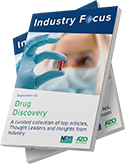Albert Einstein College of Medicine and Montefiore Health System have received a seven-year, $30 million grant from the National Institutes of Health (NIH) to continue support for the Harold and Muriel Block Institute for Clinical and Translational Research at Einstein and Montefiore (ICTR). The latest Clinical and Translational Science Award (CTSA) will ensure the ICTR will further its vision to improve health in the Bronx, Westchester, and lower Hudson Valley by accelerating the translation of scientific discoveries into effective and equitable prevention and treatment approaches.
Since establishing the ICTR in 2008, our goal has been to reduce barriers that researchers face in making new discoveries and to speed the rate that scientific findings are incorporated into clinical practice. And while we have always prioritized addressing health disparities, we are launching new resources to catalyze and support research that will significantly advance health equity."
Marla Keller, M.D., principal investigator of the CTSA grant, director of the ICTR, and professor and vice chair of medicine at Einstein and Montefiore
The new CTSA award will also focus on advancing translational science, a new field of investigation dedicated to enhancing the efficiency and effectiveness of all translational research. "Over the coming years, our ICTR will introduce innovations in critical areas such as community engagement, health informatics, and data science that will facilitate research across a range of diseases and conditions," said Mimi Kim, Sc.D., co-principal investigator of the CTSA grant, associate director of the ICTR, and professor and head of the division of biostatistics in the department of epidemiology & population health at Einstein and Montefiore.
Over the past 15 years, the ICTR has supported approximately 1,000 projects each year, many to address diseases that are disproportionately prevalent in the Bronx, including diabetes, opioid use disorder, HIV, cardiovascular disease, cancer, and asthma. The ICTR played a leading role in Montefiore and Einstein's response to the COVID-19 pandemic, including participation in 15 multicenter clinical trials, publication of "real-world" studies on people with both COVID-19 and another disease or condition, identification of immune responses in children, and assistance in developing national treatment guidelines.
Drug Discovery eBook

The ICTR will also continue to innovate approaches to research around structural racism and its impact on health. The institute has previously supported initiatives that directly advance health equity, such as Montefiore's roll-out of social needs screenings to better understand the challenges patients face at both the individual and population levels. The new grant will expand these efforts, assisting investigators to integrate social needs into study design, use new tools and algorithms to evaluate overlapping social needs, and understand systems-level bias and discrimination.
"At the core of Einstein and Montefiore has always been a commitment to equitable access to healthcare, education, and research for all people in our communities," said Paul Marantz, M.D., M.P.H., associate dean for clinical research education at Einstein, associate director of the ICTR, and professor of epidemiology and population health and of medicine at Einstein and Montefiore.
Consistent with the ICTR's theme of "Building Bridges in the Bronx and Beyond," an expanded ICTR community and stakeholder engagement core co-directed by Carmen Isasi, M.D., Ph.D., and Earle Chambers, Ph.D., M.P.H., will develop new models of community engagement to foster deeper connections with members of the Bronx, Westchester, and lower Hudson Valley communities so their perspectives can better inform research topics and priorities. The ICTR will expand its partnerships with community-based organizations to generate and disseminate study results and evidence-based health information to local residents.
Albert Einstein College of Medicine
Posted in: Medical Science News | Healthcare News
Tags: Aging, AIDS, Asthma, Brain, Cancer, Cardiology, Cardiovascular Disease, Children, covid-19, Diabetes, Education, Epidemiology, Health Disparities, Health Systems, Healthcare, HIV, Hospital, Liver, Liver Disease, Medical School, Medicine, Neuroscience, Pandemic, Pediatrics, pH, Research, students, Translation, Vascular
Source: Read Full Article
